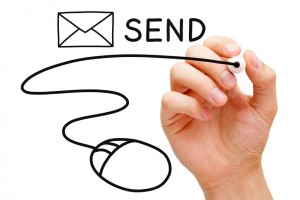“Choice of attention – to pay attention to this and ignore that – is to the inner life what choice of action is to the outer. In both cases, a man is responsible for his choice and must accept the consequences, whatever they may be.”
W.H.Auden
The Training Box is not alone in noticing that a lot people do not bother to respond to emails anymore. One recent article we came across, sourced from The New York Times, quoted people listing reasons ranging from “Replying will just result in more mail,” to “It’s easier not to reply than to say no.” Clearly, we have to accept that overloaded mailboxes will occasionally result in emails being missed or in delayed responses but not replying should definitely not be “the new no”. In what other communication channel is it acceptable to ignore the person who is reaching out to you without being considered to be impolite or rude? Your email is a reflection of you. Every email you send has the potential to add to your reputation or to damage it. Ignoring any email (other than spam, junk mail or circulars) is much more likely to send out a negative message.
3 very good reasons why you should always reply to your emails
- Treat others as you would like to be treated. If you ask someone a question or send them an invitation (whether in person or on the telephone or in an email), you expect a reply. How does it make you feel to be ignored and what does it say about you if you ignore others?
- Replying to requests demonstrates professional values and respect – even if you have to say “no”. It is not essential to write long mails with endless justifications if you decide it is best to turn down someone’s request. Reply simply, clearly and directly giving your reasons.
- People organising events and meetings need to plan and prepare. When an invitation states “RSVP” then do – organisers need to commit to venues and make catering arrangements. If you are not sure if you can go but might like to, at least provide this information along with a date when you expect to be able to respond.
3 ways to make sure people don’t ignore your emails
- Don’t be guilty of cluttering other people’s mailboxes with unnecessary mails, too much information or needless requests. People will realise that when they hear from you, it is for a good reason that deserves a response.
- Keep your mails concise, relevant and clear – if you need a response or there is action required, state this clearly in the subject line or in the body of the mail. Provide response dates.
- If you make a request or need a favour, then make it clear that if the response is going to be “no” that you are understanding and that you open to hearing this, along with a brief explanation.

